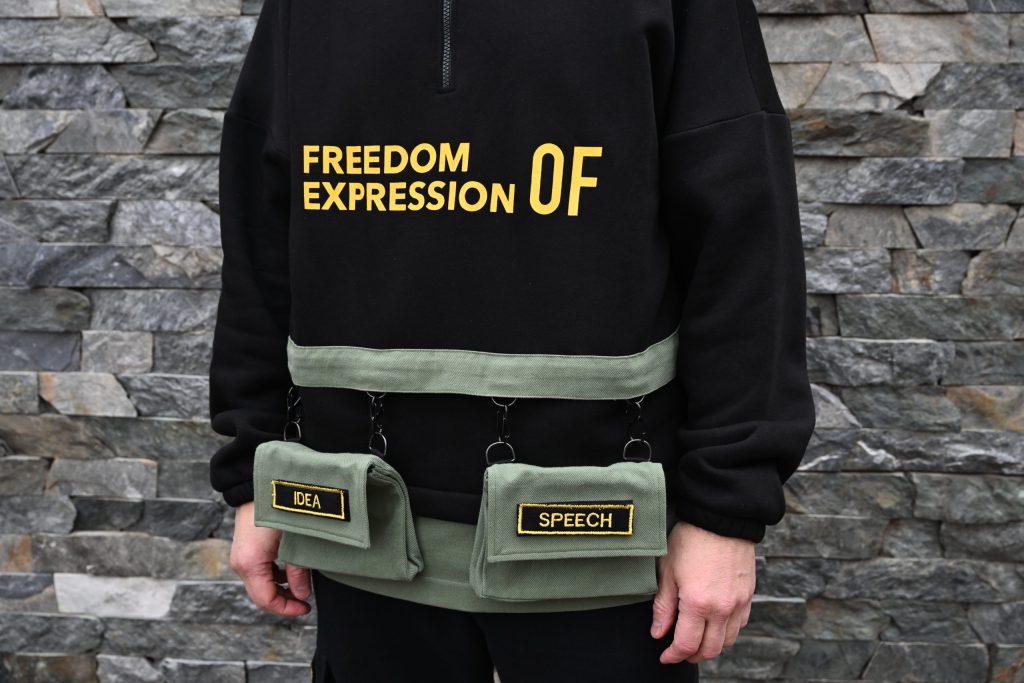
“Everyone has the right to freedom of expression. This right includes freedom to hold opinions and to receive and impart information and ideas without interference by public authority and regardless of frontiers…” (Article 10 of the European Convention on Human Rights). Freedom of expression is also referred to as the “oxygen of democracy,” and the European Court of Human Rights typically reminds us in its decisions that freedom of expression is one of the cornerstones of democratic society. What does freedom of expression mean for each and every one of us? What responsibilities does the state have in relation to this freedom? Is it subject to limitations, and if so, for what purposes? “Everyone has the right…” This means that this freedom belongs to EVERY individual without exception. This is a characteristic feature of all human rights – their content and scope are not dependent on social status, race, ideology, level of education, or any other differences. “… to receive and impart information and ideas…” Freedom of expression is often called “journalistic freedom.” Indeed, the work of journalists is directly related to this freedom, and most often it is journalists who require protection of freedom of speech. But opinions can be expressed not only through words. We can convey information in various ways – through speech, behavior, appearance, through works of art, and so on. The state
cannot interfere with this. Or conversely – the state must do something to protect against such interference from others. No one can prohibit us from seeking information from open sources. We should also have the opportunity to receive information held by government bodies. Therefore, they are obliged to publish important information that represents a public interest and provide it upon citizens’ request. “… information and ideas…” There was a case when at one of the Ukrainian universities the administration closed an exhibition of artists after a group of students and teachers, who saw offensive scenes in the paintings exhibited, appealed to them. However, the organizers of the exhibition raised an important social discussion through artistic expression, and the exhibition itself was a response to the actions of young people who forcibly disrupted one of the events of other students the day before. The students who disrupted the event appealed to law enforcement agencies, but the investigation was not conducted properly.
The European Court of Human Rights has repeatedly emphasized that freedom of expression covers not only information and ideas that “are favorably perceived or considered non-offensive or neutral, but also those that offend, shock, or cause concern.” Freedom of expression, like most human rights, may be subject to limitations. But the application by the state of such actions that entail limitations must meet the criteria of necessity However, the application by the state of such actions that involve limitations can only be done in a manner prescribed by law. For example, journalistic materials or works of art cannot be subjected to censorship.
The purpose for which freedom of expression is restricted is important. Such purposes may include national security, territorial integrity, public safety, prevention of disorder and crime, protection of health or morals, protection of reputation or rights of others, prevention of disclosure of confidential information, and maintenance of the authority and impartiality of the judiciary.
Restrictions are often applied when freedom of expression enters into a sort of conflict with the right to privacy of another person. These are always complex situations and decisions.
There are many cases where journalists have been fined heavily, and sometimes even punished with imprisonment for expressing their views. Such decisions are quite dangerous if they lack sufficient justification. They can become a cause for concern about freely expressing views among other journalists and bloggers. There is another conditional term related to freedom of expression: the “sacred cow.” Serious grounds are needed for restrictions to be applied.
In Norwegian society, there was a prolonged discussion about a court decision that banned Breivik, who carried out a terrorist attack at a youth camp resulting in the death of many people, from publicly expressing his views through the media. Many believe that it is better to make such things public rather than to conceal them. In their opinion, people are capable of recognizing the absurdity and disgracefulness of such ideologies themselves. And transparency, rather than concealment, prevents propaganda.
What do you think?
And what examples do you know related to freedom of expression?
Share stories about human rights and get to know stories sent by others in our community! This way, we can promote human rights and create a society where human dignity and the values of freedom and equality are respected.
Send your stories here… We will post them on our portal…
Read, listen to, watch stories of others here…
